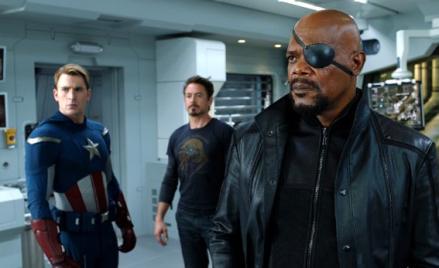Dear Dana, Wesley, and Stephanie,
Here’s where I confess to not having seen The Hobbit: An Unexpected Journey despite my plans to make an expected journey to do just that. I’m not sure what’s keeping me away: I loved Peter Jackson’s Lord of the Rings films (and liked King Kong quite a bit too, even if I can’t say the same of The Lovely Bones). The book’s a childhood favorite. I’ve enjoyed Martin Freeman’s past work. Dwarves and dragons … sure, I like those. And while I’m not reflexively wild about 3-D I’m not anti-3-D and curious about what 48 fps looks like.
I suspect my reluctance is tied to the project seeming overinflated (three movies?) and, as I’ve been to Middle Earth with Peter Jackson somewhat recently, overly familiar, rather than to a resistance to the technology behind its production and exhibition. I’m going to go see it, but nothing is compelling me to go see it right now (besides to the embarrassment of having to confess to all of you that I’m behind on one of 2012’s biggest films). And I think that’s the state of the cinematic spectacle as we head into 2013: Maybe there’s another Avatar-like breakthrough in our near future, but I can’t picture what it would look like, or the kind of movie for which spectacle alone will draw in audiences. I thought Prometheus looked breathtaking and used 3-D beautifully to create a strong sense of place, but Ridley Scott wasn’t able to make those visuals rescue a story that was, frankly, pretty dumb. I liked Life of Pi considerably more but, as you say Dana, it’s a case of visuals elevating the fundamentally banal material of Yann Martel’s novel—and never quite elevating them enough. (Was there a more annoying moment in the movies this year than that shot of Rafe Spall, as the writer listening to the grown-up Pi’s tale, registering the film’s big reveal on his face with surprise and enlightenment? It felt like the film patting itself on the back.)
In other words, put me on the side of those for whom spectacle for its own sake isn’t enough. My enjoyment of The Avengers, for instance, had a lot more to do with the characters and story than that climactic swarm of 3-D space aliens, which felt like an above-average climactic swarm of 3-D space aliens in an era that’s not short on them. Maybe I’m being overly optimistic, but I don’t think I’m in the minority on that point. Do moviegoers really notice whether a film is in 3-D or not anymore, beyond grudgingly coughing up a few extra bucks for a ticket? I don’t want to undersell its appeal when used well, but 3-D now seems like an entertainment tax levied by an industry that’s decided it’s the norm for event movies. The extraordinary now feels ordinary, a sign to me that “sensorial hyperreality” has already had its day as end unto itself. There has to be a movie beneath all that moviemaking and it felt like the big movies that connected with audiences—The Hunger Games, The Avengers, Skyfall, and Brave, to name a few—were trying to do more than amaze, even if they didn’t always succeed.
Am I being naive? Jaded by too many amazing visuals? Some combination of the above? Is it just that Michael Bay sat out the year?
Keith
